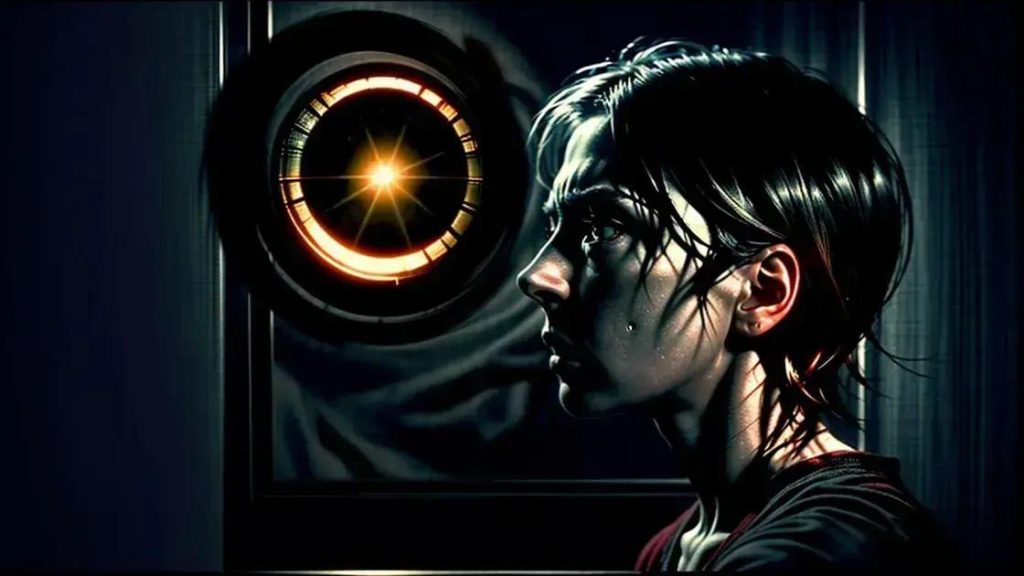Psychological thriller ending analysis: what makes it tick?

A psychological thriller ending analysis reveals key themes such as obsession, identity, and guilt, which enhance character motivations and create impactful twists that captivate and engage the audience.
Ever wondered about the craft behind a gripping story? A psychological thriller ending analysis unpacks the intricate build-up and surprises that keep us on the edge of our seats.
Key elements of psychological thriller endings
Understanding the key elements of psychological thriller endings can greatly enhance your appreciation of the genre. These endings are not just about twists; they involve a careful buildup that impacts the audience emotionally.
Surprise Twists
One vital aspect of a compelling thriller ending is the unexpected twist. These twists challenge our perceptions and assumptions about the story. They often lead us to rethink earlier events and clues presented.
Character Development
A strong ending typically hinges on well-developed characters. Their motivations and transformations must resonate throughout the story. By the time the final scenes unfold, we should feel a connection with their journeys, making the conclusion much more impactful.
- Redemption arcs often play a role in character endings.
- Unexpected betrayals can shift the perceived morality of characters.
- Transformation through adversity is a common theme.
Incorporating these character elements into the ending not only provides depth but also heightens emotional engagement.
Thematic Resonance
Lastly, the thematic elements of a story often find closure in the ending. Common themes like obsession, guilt, or the duality of human nature often play out in these critical moments. They leave the audience with lingering thoughts and questions about the overarching message of the narrative.
By understanding these elements, one can truly appreciate how a psychological thriller wraps up its key themes while ensuring the audience remains entangled in the tension of the final moments.
Analyzing character motivations and their impacts

When discussing a psychological thriller, analyzing character motivations and their impacts is crucial. Characters drive the narrative, and understanding why they act can enhance our connection to the story.
Understanding Motivations
Motivations are the reasons behind a character’s actions. These can range from personal desires, trauma, to deeper psychological issues. For example, a character who seeks revenge often has a painful backstory that informs their choices.
Emotional Impacts
The emotional impact of a character’s motivations can shape the audience’s response. When we comprehend a character’s struggles, we may empathize or even find ourselves feeling conflicted about their choices.
- Empathy emerges when we relate to the character’s pain.
- Confusion often arises from complex character arcs.
- Shock can result from unexpected actions, leading to a significant plot twist.
Additionally, the reactions of other characters to these motivations can enrich the plot. A character’s decisions often spark conflict, pushing the story forward. As layers of motivation are revealed, the audience might begin to see different facets of the narrative, making for a more engaging experience.
In psychological thrillers, every choice a character makes serves a purpose. By analyzing these motivations closely, we can unravel the intricate web of relationships and events that keep us on the edge of our seats.
The role of twists and their effectiveness
Twists are a fundamental part of any psychological thriller, often presenting shocking revelations that change everything. Understanding their role and effectiveness can enhance our viewing experience.
The Importance of Twists
Twists serve as surprises that challenge our expectations. They often come at crucial moments, creating a sense of urgency and excitement. When executed well, a twist can redefine the story, making us rethink what we’ve seen up to that point.
Creating Suspense
Successfully crafted twists create suspense by leading the audience down one path while hiding the truth. This misdirection keeps viewers engaged, as they are constantly trying to solve the mystery. A strong twist wraps up seemingly unrelated plot points, tying together loose ends.
- Effective twists provoke strong emotional reactions.
- They encourage the audience to re-evaluate previous scenes.
- Unexpected revelations can highlight character flaws.
Moreover, twists should feel credible and not forced. A twist that aligns with the story’s tone enhances its overall impact, leaving viewers both shocked and satisfied. When a twist feels organic, it deepens the story’s narrative, creating a more profound connection to the characters.
In psychological thrillers, twists can often pull viewers into the minds of the characters, unraveling their motivations and fears. This dual-layer of suspense not only entertains but also fascinates, leaving lasting impressions long after the credits roll.
Common themes in psychological thrillers’ conclusions

Exploring common themes in psychological thrillers offers insight into the human psyche and storytelling techniques. These themes often reflect deep-seated emotions and fears.
Obsession and Paranoia
One prevalent theme is obsession. Characters often become fixated on a person or an idea, leading to destructive behavior. This obsession can spiral into paranoia, where characters see threats everywhere. This creates tension and keeps audiences engaged.
Identity and Duality
Another recurring theme is identity. Many psychological thrillers explore the duality within characters, revealing hidden sides of their personalities. This struggle can lead to unexpected outcomes, forcing characters to confront their true selves.
- Identity crisis often leads to drastic decisions.
- Characters may face challenges that reveal their darker sides.
- Conflicting identities can create gripping narratives.
Exploring these themes allows filmmakers and authors to delve into complex emotions. They invite viewers to question their own beliefs and experiences. This connection makes the thrillers not just entertaining but thought-provoking.
The theme of guilt also plays a significant role. Characters wrestling with guilt experience intense psychological conflict, which can influence their actions and decisions. This guilt often serves as a catalyst for the plot, propelling characters toward further interactions and events.
In these narratives, the resolution of such themes can either bring closure or leave questions lingering in the audience’s mind. The blend of these common themes ensures that each psychological thriller feels fresh and impactful, holding our attention until the final revelation.
FAQ – Common Questions about Psychological Thrillers
What are the main themes in psychological thrillers?
Common themes include obsession, identity, guilt, and paranoia, all of which explore deep emotions and human behaviors.
How do twists enhance psychological thrillers?
Twists create unexpected turns that keep viewers engaged, forcing them to reassess what they thought they knew about the story.
Why is character motivation important in these stories?
Character motivations drive the plot and can lead to complex emotional responses, making the story more relatable and engaging.
What impact do psychological thrillers have on audiences?
They provoke thought and self-reflection, allowing audiences to explore their own fears and emotions through the lens of fictional characters.





